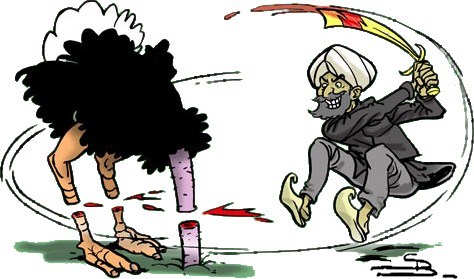The opposition party that holds the balance of power in the Quebec National Assembly supports a ban on religious headgear for teachers and other authority figures, but says the Parti Québécois’s reported Charter of Quebec Values goes too far.
François Legault, leader of the Coalition Avenir Québec (CAQ), says he views the minority Marois government’s charter, details of which were leaked to the media, as “too radical.” According to reports, the government would ban religious symbols such as Sikh turbans, Muslim hijabs and Jewish kippas in the public service and in workplaces such as daycares, schools and hospitals.
Mr. Legault, the second opposition party after the Liberals, says Quebec needs a charter of secularism and Quebeckers are seeking guidelines to protect their values and heritage. His party would prevent judges, police officers and prison guards from sporting religious symbols, as well as elementary and high-school school teachers.
“We think a teacher who’s with a child is in a position of authority,” Mr. Legault said.
However, his party believes the ban should not extend to doctors or daycare workers, he added. And preventing a government office worker from wearing a cross around her neck goes too far, an example he offered repeatedly when he laid out his party’s position at a press conference.
Mr. Legault also said the crucifix in Quebec’s National Assembly should remain in place, as it reflects the Catholic heritage of a majority of Quebeckers.
Mr. Legault made the comments amid evidence the PQ government’s proposed charter is opening deep fracture lines in the province, with a majority of francophones supporting the idea and most non-francophones against it.
A new public-opinion poll suggests Ms. Marois’s message over the weekend – that the Charter will unify the province – holds some truth among Quebec’s francophone majority only.
The Léger poll, published Monday in the Journal de Montréal, suggests that 65 per cent of francophone Quebeckers consider the idea of a Charter of Quebec Values a good idea.
Linguistic minorities are considerably less favourable to the idea; according to the findings, the Charter is opposed by a majority of anglophones and allophones (those whose mother tongue is neither English nor French). Only 25 per cent of anglophones and 33 per cent of allophones believe it is a good idea, the survey suggests.
The findings suggest that the Parti Québécois of Ms. Marois has found a fertile issue to drum up support in its electoral base.
The issue of accommodating religious minorities appears to resonate more strongly outside Montreal, where immigration is low and provincial election races are won and lost.
Three in four Quebeckers outside Montreal believe that Quebec makes too many accommodations for religious minorities. However, even in multicultural Montreal, where the overwhelming number of immigrants settle, 61 per cent are of the same opinion, according to Léger.
Nonetheless, nearly one Quebecker in two believe the controversial Charter will stir up conflict and only 28 per cent believe it will resolve the issue of religious accommodations, the poll finds.
The Internet survey polled 1,000 people on Friday and Saturday, and is considered accurate plus or minus 3.1 per cent, 19 times out of 20.
Opposition party says PQ secular charter ‘too radical,’ but supports some bans
Ingrid Peritz
































Laissez un commentaire Votre adresse courriel ne sera pas publiée.
Veuillez vous connecter afin de laisser un commentaire.
Aucun commentaire trouvé